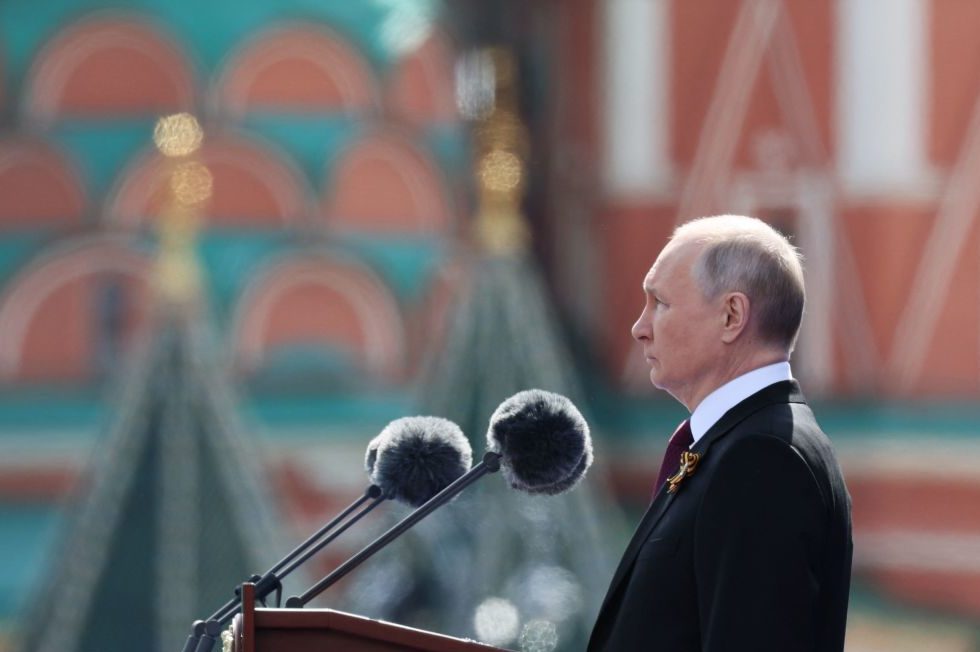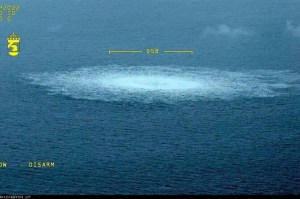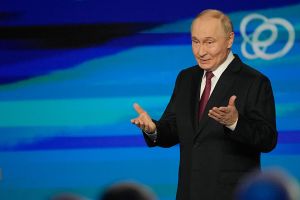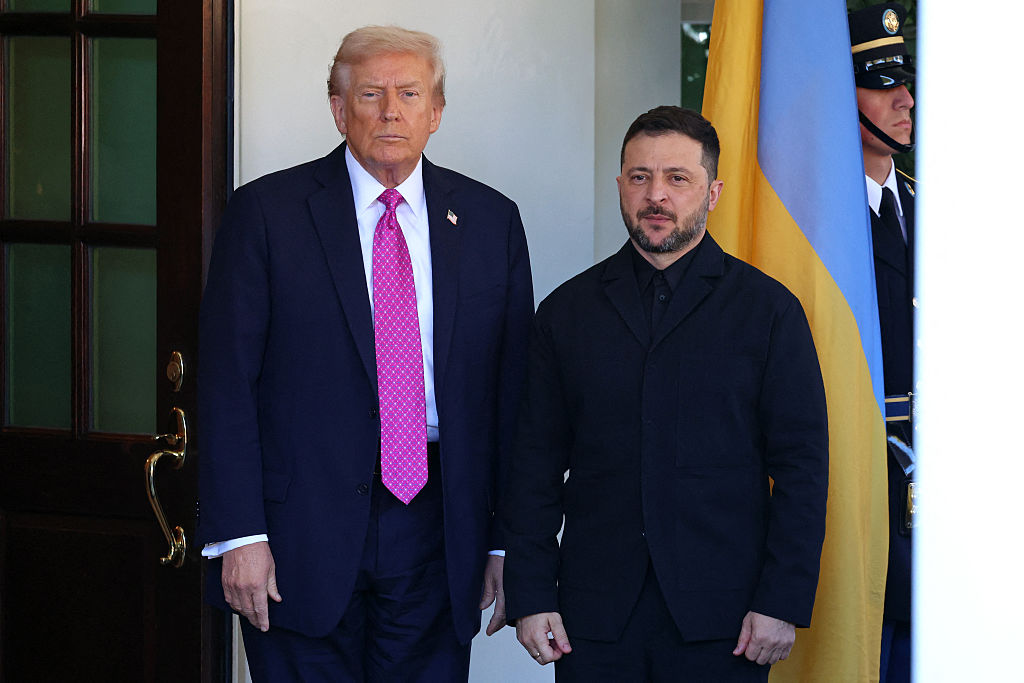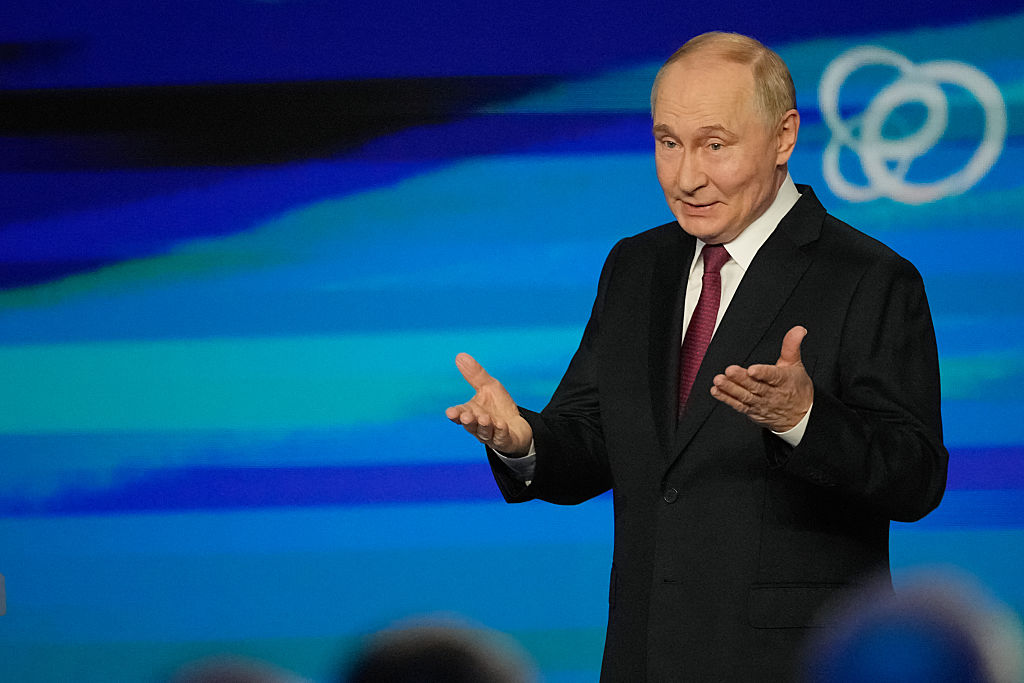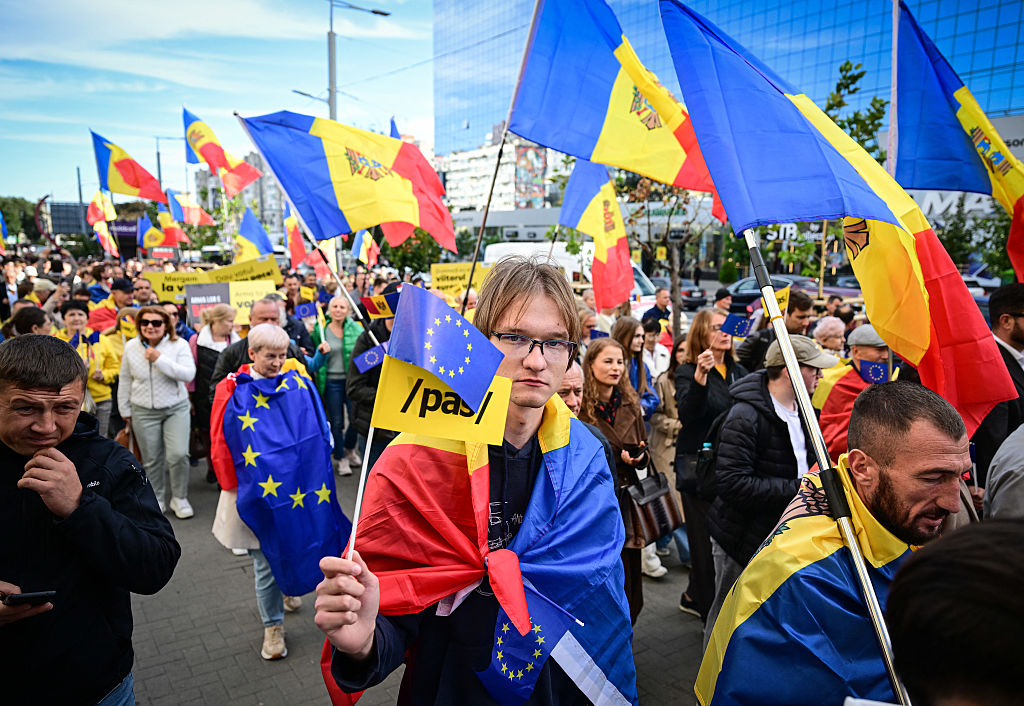It may be having trouble on the battlefield, but the Russian army does know how to stage a parade. Behind the goose-stepping ranks, massed bands and rumbling missile launchers, though, was a clear sense of the practical and political costs of the war in Ukraine.
Although parades from Crimea in the south to Pskov in the north had been canceled on reasons of security, there was no way Vladimir Putin could let this one not run — even Covid had not accomplished that. The Senate’s golden dome had been repaired after last week’s drone attack — and anti-drone guns were very much in evidence among the security team — and the sky was a requisite blue (if need be, the air force seed clouds to make them rain the day before, to ensure the appropriate backdrop).
The event followed the familiar routines, from the ritual passage of the scarlet “victory banner” — descendant of the one waved over the Reichstag in 1945 — from one end of Red Square to the next, through the “Ura” cheers from the assembled troops, to Putin’s speech. However, it felt distinctly less confident than in the past.
Where were the tanks?
For a start, it was smaller. In 2020, more than 14,000 soldiers tramped through the square; this year it was only around 10,000. Most strikingly, where were the tanks? Usually, the parade includes an extensive showcasing of Russian hardware, but this time the only tank in view was a World War Two T-34 leading the much-curtailed vehicular part of the event. We knew the Russians were raiding stockpiles and reconditioning 1960s-vintage tanks for the war, but not to be able to spare even a few modern ones for this set-piece event was quite an admission. Nor was there the traditional flypast: last year, they rather unconvincingly claimed weather conditions precluded it, but this time the authorities didn’t even give an excuse.
In the past, the parade was both the focus of city-wide celebrations and also a soft power opportunity to bring an array of global leaders to Moscow. This year, all Putin could muster were the heads of the five Central Asian states as well as Belarus and Armenia — not inconsiderable in their own terms, to be sure, but all to a greater or lesser degree dependent on Moscow. It marked a far cry from the past array of presidents and prime ministers. Muscovites will no doubt be enjoying the nostalgic and communal events of the day, from bands in Gorky Park to the evening fireworks; Red Square itself was packed, as usual, with ticket-holders and official guests. Yet people on the ground reported less apparent interest than usual along the parade route.
If they were nervous, then Putin’s ten-minute speech gave them every reason to be. Short and sour, even by his usual standards, it went even further than least year’s in presenting Russia as not the aggressor but the victim of a hostile, hegemonic — and woke — west. Ordinary Russians risk prison if they call the “special military operation” a war, but Putin, presumably unworried by the risk of being bundled into an avtozak police van, pronounced that “a real war has been unleashed against our homeland.”
Drawing direct parallels with the so-called Great Patriotic War against Nazi Germany, he said that “civilization is again at a decisive turning point” because “western globalist elites” were seeking to “destroy and decimate” Russia. Hence, this was another of the “decisive battles for the fate of our Motherland,” which was thus “patriotic, all-national and sacred.” Increasingly, the invasion of Ukraine is in effect being spun as the “Great Patriotic Military Operation.”
The seventy-year old Putin looked and sounded in good form, belying claims of his worsening health and imminent demise. He exchanged remarks with defense minister Sergei Shoigu, also bringing into question assertions of a chilly rift between the two men. Yet there was also no escaping the way that the parade, for all its rousing tunes and geometric choreography, signaled a military locked in an unexpectedly tough war. There were ample bands but dwindling stocks of armor: Russia is a nation losing its international status, and its president has nothing to offer his people but claims of victimhood and ahistorical appeals to historic precedent.
This article was originally published on The Spectator’s UK website.



